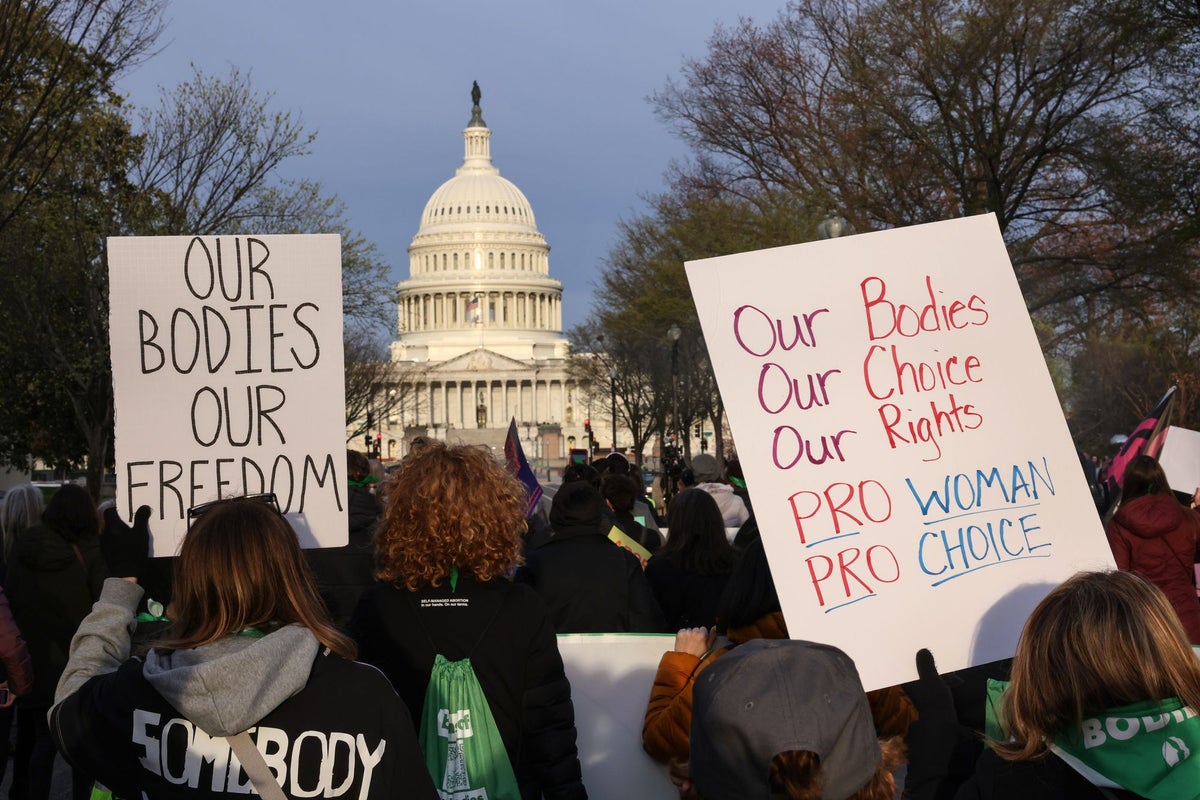Health
RFK Jr. Initiates FDA Review of Mifepristone Amid Abortion Debate

Health and Human Services Secretary Robert F. Kennedy Jr. has initiated a review by the Food and Drug Administration (FDA) concerning the pill mifepristone, which is used in approximately two-thirds of abortions in the United States. This decision follows a formal request from over two dozen Republican attorneys general, who raised concerns about the drug’s safety and efficacy. In a letter addressed to these officials, Kennedy and FDA Commissioner Marty Makary stated that the FDA would conduct a “thorough review of the evidence, including real-world outcomes,” regarding mifepristone.
The letter emphasized that the concerns raised by the attorneys general “merit close examination.” Kennedy affirmed the administration’s commitment to ensuring women’s health is protected, pledging a detailed investigation into the circumstances surrounding the safe dispensation of mifepristone. Makary, in a statement to Politico, noted he had “no preconceived plans” to alter existing policies regarding the drug.
Safety and Efficacy of Mifepristone
Mifepristone is usually administered in combination with misoprostol for medication abortions. Planned Parenthood, the leading reproductive health care provider in the nation, has defended the safety of mifepristone. In a statement, Danika Severino Wynn, vice president of care and access at Planned Parenthood Federation of America, pointed out that the drug has been used safely and effectively for over 25 years. “Recent innovations like telehealth have expanded access to people who would otherwise be unable to get abortion care,” Wynn stated, underscoring the significant impact this has had on reproductive health for many patients.
The FDA approved mifepristone in September 2000, and according to the agency, there have been just 36 reported deaths associated with the drug from its approval until December 2024. The Guttmacher Institute, a prominent reproductive health research organization, reported that medication abortions accounted for 63 percent of all abortions in the U.S. in 2023. This method has become increasingly vital for patients, particularly in states that have enacted strict abortion bans, as the pills can be mailed directly to individuals.
Legal and Political Context
As of July 2024, twelve states have implemented total bans on abortions, according to data from the Guttmacher Institute. In June 2024, the Supreme Court upheld access to mifepristone, rejecting a legal challenge posed by anti-abortion groups. This ruling came nearly two years after the Court’s decision to overturn Roe v. Wade, which had previously guaranteed the constitutional right to abortion.
The ongoing debate surrounding mifepristone highlights the intersection of health care and political discourse in the United States. With the FDA’s review underway, stakeholders across the spectrum are closely monitoring developments that could impact access to abortion services and the broader implications for women’s health.
-

 Health3 months ago
Health3 months agoNeurologist Warns Excessive Use of Supplements Can Harm Brain
-

 Health3 months ago
Health3 months agoFiona Phillips’ Husband Shares Heartfelt Update on Her Alzheimer’s Journey
-

 Science1 month ago
Science1 month agoBrian Cox Addresses Claims of Alien Probe in 3I/ATLAS Discovery
-

 Science1 month ago
Science1 month agoNASA Investigates Unusual Comet 3I/ATLAS; New Findings Emerge
-

 Science4 weeks ago
Science4 weeks agoScientists Examine 3I/ATLAS: Alien Artifact or Cosmic Oddity?
-

 Entertainment4 months ago
Entertainment4 months agoKerry Katona Discusses Future Baby Plans and Brian McFadden’s Wedding
-

 Science4 weeks ago
Science4 weeks agoNASA Investigates Speedy Object 3I/ATLAS, Sparking Speculation
-

 Entertainment4 months ago
Entertainment4 months agoEmmerdale Faces Tension as Dylan and April’s Lives Hang in the Balance
-

 World3 months ago
World3 months agoCole Palmer’s Cryptic Message to Kobbie Mainoo Following Loan Talks
-

 Science4 weeks ago
Science4 weeks agoNASA Scientists Explore Origins of 3I/ATLAS, a Fast-Moving Visitor
-

 Entertainment4 months ago
Entertainment4 months agoLove Island Star Toni Laite’s Mother Expresses Disappointment Over Coupling Decision
-

 Entertainment3 months ago
Entertainment3 months agoMajor Cast Changes at Coronation Street: Exits and Returns in 2025









